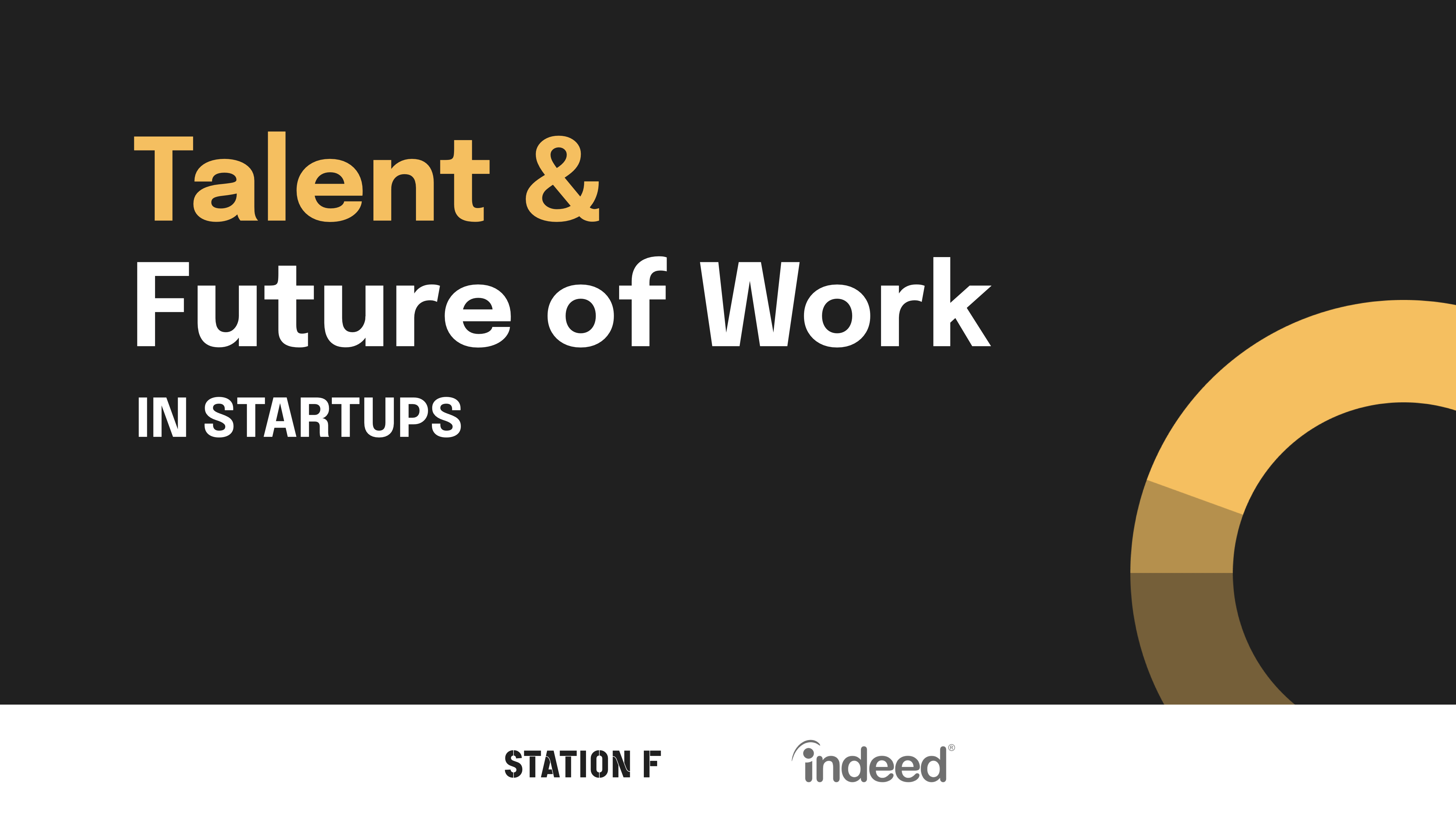STATION F unveils the results of its survey about talent & the future of work with Indeed and 200+ VC funds
STATION F, the world’s largest startup campus, unveiled Thursday the results of a large survey about talent and the future of work supported by 200 VC funds, Indeed and Mazars.
STATION F, the world’s largest startup campus, unveiled Thursday the results of its large comprehensive survey on talent and the future of work in the startup ecosystem conducted with 400 companies supported by 200+ VC funds, Indeed and Mazars. Realized by IPSOS, the study focuses on gender diversity, entrepreneurs’ recruitment policy, hiring challenges, and the development of new work methods.

The hiring market is tighter than ever with a rise in wages
More than ever, hiring is the main issue for startups. More than two-thirds of surveyed companies point out that they don’t find enough developers and tech specialists profiles, while almost one-third also say that they have trouble recruiting for sales roles. This tension in the recruitment market produces a sharp rise in salaries, with an average annual salary of $119.884 for a CTO (Chief Technical Officer) in companies with 20 employees or more and $47.500 for a junior developer.
“Hiring and retaining the right people has always been one of the most important challenges for startups - and is becoming increasingly difficult as the global ecosystem continues to move forward. Founders need to keep up with evolving new roles, required skills, compensation, ways of working and more in order to build and grow their teams. We hope that the findings in our study will be able to serve startups worldwide and provide insight into this core element of their business”, explains Roxanne Varza, STATION F’s Director.
A need for more diversity in the talent pool
Despite a slight improvement during the past years, only 18% of startups are female-founded today and women only represent 25% of companies’ top management. The results show that startups are establishing a diversity policy late in their development. Indeed, only 34% of the companies surveyed have a dedicated policy and almost two-third of them (61%) already have more than 20 employees.
On the other hand, companies can bet on new work methods and full or part-time remote work to diversify their talents pool. More than half of companies (55%) are recruiting new employees in full remote and for 79% without any salary difference with an employee working in office. To lift the brakes for actual team members, 61% of startups have authorized full remote working - including in another city - for their teams.
Matthieu Eloy, General Director of Indeed France explains: “At the beginning of the crisis, job offers were divided by 2. Then, recruitments slowly started again, with unequal rhythms depending on the sectors, to finally outpass this number today. As a consequence of mobility restrictions, remote working could settle down in job offers: remote working is mentioned in 5% to 6% of job offers today. Now, it’s in the companies hands to benefit from productivity gains that remote working offers in the long term. Going to a recruitment based on skills instead of a resume, and from an on-site culture to a result culture, having a new relation with the workplace allows attract new profiles and talents.”
The challenge of team cohesion
Event if remote and full remote have many advantages, companies will need to watch out for team cohesion. Currently, almost half of them (46%) note that their team cohesion has been degraded since the instauration of remote working and the Covid-19 crisis.
Find the complete results of this study on data.stationf.co/2021.
Looking for press resources? Download our press kit and get in touch with our media team.